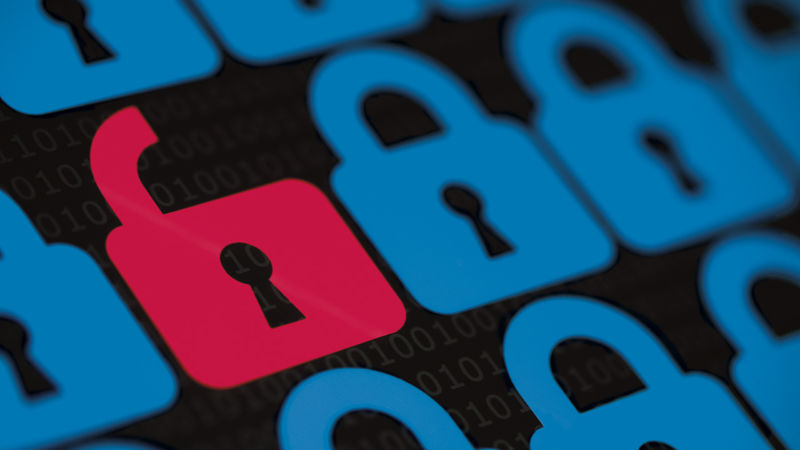As government agencies emerge from the global pandemic, they set their sights on recovering some of the billions of dollars lost to fraud during that time
How much money was lost to fraud committed in connection with the COVID-19 pandemic? While the totals continue to fluctuate depending on the source, the official word from the US Labor Department’s Inspector General is a staggering $163 billion — money taken from pandemic relief programs set up to help businesses and people who lost their jobs get back on their feet.
Global fraud rings used numerous scam techniques to drain federal relief programs and defraud unsuspecting victims through phishing emails and texts, bogus social media posts, robocalls, impostor schemes — all highly effective at stealing personal identifying information and pandemic relief funds.
Now, more than two years after the start of the pandemic, law enforcement is looking for ways to recover some of those funds for victims and improve communication between the public and private sectors as a way to prepare for the next pandemic. They are examining the evolution of fraud over the last two years and identifying key takeaways to safeguard for the future.
Early in the pandemic, criminals focused on fraud related to personal protective equipment (PPP) such as N-95 masks and bogus testing kits. But as the US government began to fund stimulus programs through the Coronavirus Aid, Relief and Economic Security (CARES) Act, individuals and organized criminal networks worldwide pivoted their crime schemes.
This has led to a focus on recovering pandemic-related relief and has become an investigative priority for the Secret Service in partnership with government agencies and financial institutions. “Law enforcement is prioritizing the exploitation of pandemic-related relief because the federal funding through the CARES Act attracted the attention of individuals and organized criminal networks worldwide,” says Roy Dotson Jr., Assistant Special Agent in Charge of the Jacksonville Secret Service field office and the National Pandemic Fraud Recovery coordinator.
Partnership is the way forward
Part of Dotson’s job is to act as a point person, addressing ongoing COVID-19 pandemic criminal activity through prevention, mitigation, and investigation. He works in conjunction with his office’s Cyber Fraud Task Forces and with federal, state, local, tribal, and territorial partners, as well as with foreign law enforcement, academia, and the private sector partners, particularly financial institutions.
“I work with law enforcement partners to provide information and training relative to the recovery of pandemic funds — whether through seizure warrants or administrative seizures,” Dotson says.
As he investigated pandemic-related crime over the past two years and spoken to agencies across the country, Dotson has seen a huge uptick in cyber-enabled crime, meaning those crimes that are digital in nature. Whether business email compromise scams, ransomware attacks, data breaches, or the sale of personally identifiable information on the dark web, financially motivated cybercrime is on the rise. And we saw it in some of the biggest pandemic-era fraud scams, including unemployment fraud and theft of PPP loans.
Two scams Dotson specifically points out aren’t all that new — identity theft and money mule networks, in which victims, often unwittingly, launder or move illicit funds for criminals. Dotson has worked hard to share his expertise and resources, and disseminate best practices to law enforcement and financial institutions relative to their core investigations.

Sadly, money mule scams are challenging because the victims are often members of vulnerable populations or come from low-income communities. Money mule scams can happen through fraudulent employment schemes or online dating or romance scams. Dotson says criminals recruit money mules to help launder proceeds derived from online scams and frauds or crimes like human trafficking and drug trafficking. Because money mules add layers of distance between crime victims and criminals, it is harder for law enforcement to accurately trace money trails.
“I speak with elderly persons who respond to an online job opportunity,” Dotson explains. “They don’t really understand they are being manipulated.” The victim will accept an offer of employment from the criminal, and then the criminal will direct the unsuspecting victim to open a bank account in their own name to receive and transfer money.
As the criminal gang’s “employee,” the victim will be asked to receive funds in their bank account and then “process” or “transfer” funds through wire transfers, Western Union, or MoneyGram, ACH, or even US mail. In some scenarios the victims are even instructed to send funds via a bitcoin ATM machine.
Compounding the problem is that the criminals are often international syndicates, including West African groups. “These aren’t just random lone criminals on the internet. The scammers are a full-time operation. This is their focus 24/7. They are much more sophisticated than we give them credit for,” he says.
Improved communication leads to better results
While this may seem daunting, Dotson is optimistic about stopping fraud such as unemployment fraud scams, should another pandemic-like disaster occur. State agencies, which administered much of the COVID-19 pandemic relief funds, have improved their platforms and modernized their process. There are also greater interagency communication. “The states are communicating much better with the Department of Labor,” Dotson says. “At the start of the pandemic, we basically had 54 statewide agencies operating independently from one another.” While this was through no fault of any particular agency, it presented a huge opportunity for criminal organizations to exploit that vulnerability.
In today’s environment, cyber-enabled crime investigations require the skills, technologies, and strategic partnerships in both the cyber and financial realms. Dotson says that investigators can no longer effectively pursue a financial or cybercrime investigation without understanding both the financial and internet sectors, as well as the technologies and institutions that power each industry.
However, Dotson’s office is here to help. “I want to continue to develop great relationships with financial institutions and agencies,” he says. “I can share fraud trends I am seeing that might be novel to their bank — or, if something major goes down, we can get that information out to the community very quickly.”







